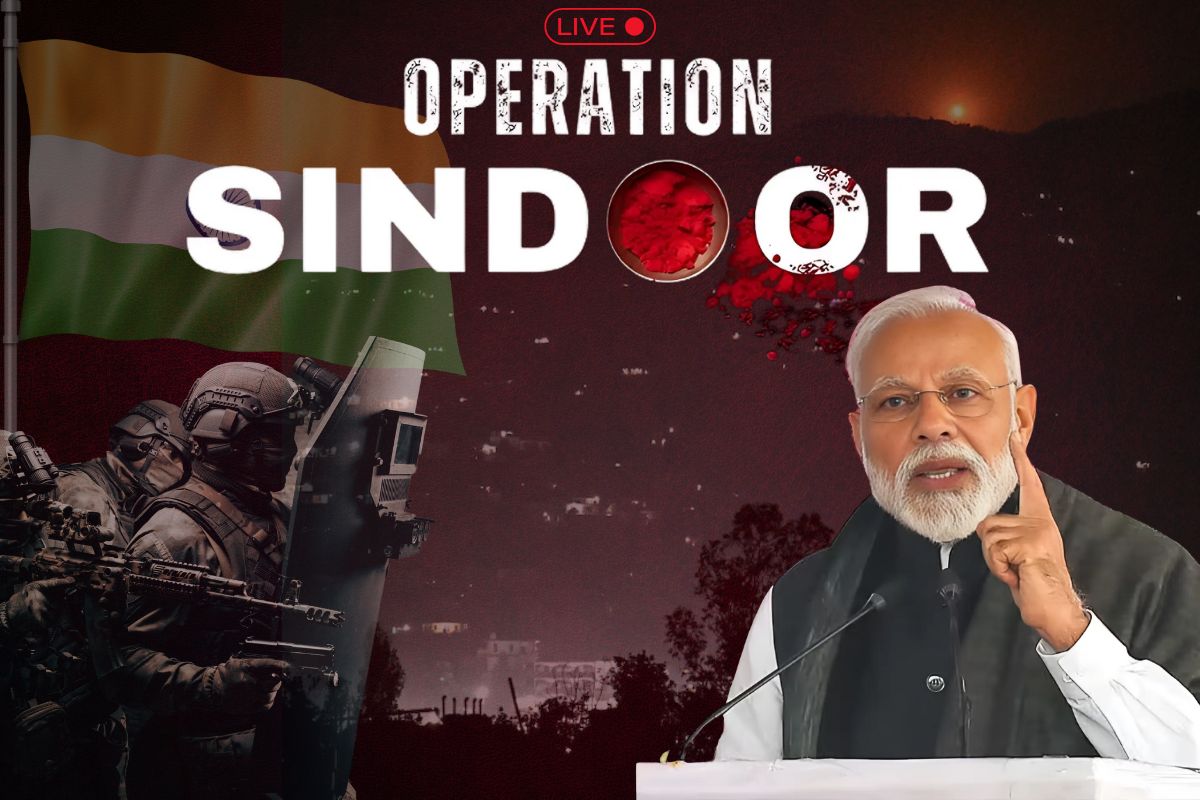


Indian forces on Wednesday launched “Operation Sindoor,” a series of precision strikes on terror training camps across the border. According to the Defence Ministry, 24 long-range missile strikes hit nine terrorist sites in Pakistan and Pakistan-occupied Kashmir (PoK), including Lashkar-e-Taiba’s Muridke base and Jaish-e-Mohammed’s Bahawalpur hub. Over 70 militants were killed and dozens wounded, officials said, significantly degrading the groups’ capabilities. The government stressed the strikes were “focused, measured and non-escalatory in nature,” deliberately sparing Pakistani military or civilian infrastructure. The action was explicitly framed as justice for the April 22 Pahalgam terror attack in Jammu & Kashmir, which killed 26 people (25 Indians and one Nepali).
Table of Contents
ToggleOfficials later revealed Operation Sindoor employed India’s most advanced strike systems. Some of the weapons that were used were the air-launched SCALP (Storm Shadow) cruise missile and the HAMMER precision-guided bomb, which was made in the United States. For deep entry, the SCALP missile has a range of more than 250 km, and the HAMMER gliding bomb can hit protected targets from 50–70 km away. Loitering “kamikaze drones were also deployed for surveillance and final targeting, underscoring the technological sophistication of the operation.
Shortly after the strikes, Pakistan opened heavy fire along the Line of Control and the International Border. Official sources reported at least ten Indian civilians killed and over 30 injured in Pakistani shelling of border villages. Jammu & Kashmir’s Chief Minister Omar Abdullah called Pakistan’s barrage “anything but proportionate,” noting that India had struck only terrorist bases, not civilian areas. State authorities raised security alerts in vulnerable districts and began evacuating forward settlements ahead of any further exchanges.
Proud of our armed forces.#OperationSindoor is Bharat’s response to the brutal killing of our innocent brothers in Pahalgam.
The Modi government is resolved to give a befitting response to any attack on India and its people. Bharat remains firmly committed to eradicating…
— Amit Shah (@AmitShah) May 7, 2025
Home Minister Amit Shah on Wednesday convened an emergency security review with chief ministers, DGPs, and senior officials of states bordering Pakistan (and Nepal). The meeting – attended by leaders from Jammu & Kashmir, Punjab, Rajasthan, Gujarat, Uttarakhand, Uttar Pradesh, Bihar, Sikkim, and West Bengal – came hours after the Pakistani shelling. Shah ordered the immediate evacuation of civilians from forward areas, calling their safety “India’s priority”, and authorised the armed forces to undertake “corresponding actions” against any new threats. Officials said Shah remained in constant touch with the Border Security Force chief and Jammu & Kashmir’s Lieutenant Governor and Chief Minister as the situation evolved.
Authorities quickly beefed up security across India. The Wagah–Attari daily flag-lowering ceremony was suspended as a precaution, and Punjab closed its Kartarpur Sahib pilgrimage corridor for the day. Schools and colleges in sensitive Jammu & Kashmir districts were ordered shut. Uttar Pradesh police declared a “red alert” along the border, and airspace restrictions led to hundreds of flight cancellations. New Delhi postponed Prime Minister Modi’s upcoming foreign tour and accelerated nationwide defense drills (code-named “Poorvi Dhwaj”).
Prime Minister Narendra Modi hailed the strikes as a “moment of pride” for the country. He vowed to hunt down those responsible “to the ends of the earth,” saying India will mete out punishment “beyond [the terrorists’] imagination”. Opposition parties largely supported the action: Congress President Mallikarjun Kharge lauded the Army’s “resolute resolve and courage” and called for unity against terrorism. A full parliamentary meeting has been scheduled for May 8 to review the security situation. The government’s stated goal remains to dismantle the cross-border terror infrastructure and ensure no repeat of the Pahalgam massacre.
The Bharatiya Janata Party (BJP) organized a Tiranga rally for May 15, 2025, in Srinagar’s Lal Chowk to celebrate the success of Operation Sindoor. The rally began at Sher-e-Kashmir Park with people holding the national flag and singing patriotic slogans. It ended at the old Ghanta Ghar.
Leading the parade, BJP officials, including state spokesman Altaf Thakur and Waqf Board chairman Darakhshan Andrabi, praised the Indian Armed Forces for their forceful action against terrorist hideouts in Pakistan following the Pahalgam incident. The occasion sought to celebrate military force courage and underline regional national unity.

